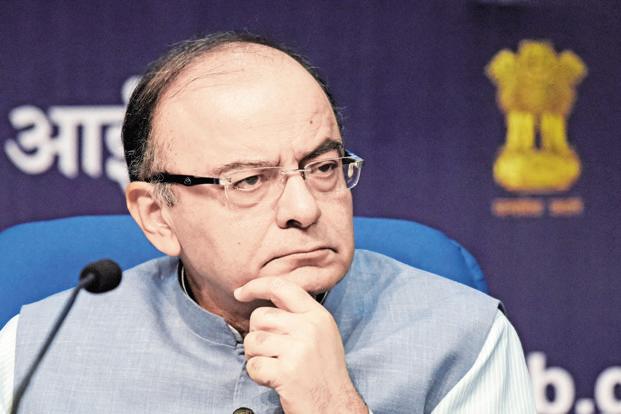GST progress held up by inter-state sales issue
Live mint
By Remya Nair
Thu, Nov 24 2016. 01 22 AM IST
Tamil Nadu and West Bengal have sought to change a clause in the integrated GST law to empower states to control traders engaged in inter-state sales and purchases.

Finance minister Arun Jaitley. The centre may bring the CGST and the IGST bills as money bills to ensure their passage in Parliament. Photo:
New Delhi: A provision in the draft integrated goods and services tax (GST) law that says only the central government will have administrative power over all traders engaged in inter-state sales may disrupt the government’s plan to bring supporting GST legislation in the winter session of Parliament.
States such as West Bengal and Tamil Nadu have sought to change this provision to empower the states to control traders engaged in inter-state sales.
The GST council’s approval for supporting legislation may hinge on the acceptance of this demand by the centre, said people familiar with the discussions on GST.
So far, the centre and the states have not arrived at a consensus on the sharing of administrative powers under the proposed GST regime.
Pending a solution, the central GST (CGST) and the state GST (SGST) draft laws propose to bring in a generic clause allowing cross empowerment. The SGST law has a provision empowering central authorities and the CGST law has one empowering state authorities to administer taxpayers.
However, the Integrated GST (IGST) law, which deals with inter-state sales, only empowers the centre to preside over IGST proceedings.
States fear that the clause in IGST will lead to dual control as around 30-35% of the estimated 80 million plus traders who are expected to come under GST’s ambit carry out inter-state sales. This percentage increases to 80% if one takes into account both purchases and sales.
“Since IGST deals with movement of goods through various states and no one state will have jurisdiction on the entire supply chain, the centre argues that IGST traders should be under its domain. It has also cited the fact that states may have an incentive to influence a dealer to register his supplies as local supplies rather than inter-state supplies,” said a person familiar with the development. “But the states are countering these arguments (by) arguing that the use of technology negates the centre’s arguments,” the person added, asking not to be identified.
The GST council meeting, scheduled for 25 November, has been postponed till the first week of December as the final changes to the three draft laws—CGST , IGST and SGST—and the compensation law are being put together. The compensation law allows states to be compensated for any loss of revenue in the first five years of GST.
A senior government official, who asked not to be identified, expressed confidence that the government will be able to get the supporting legislation passed in the ongoing session of Parliament.
The centre may bring the CGST and the IGST bills as money bills to ensure their smooth passage in both Houses of Parliament, the official said, adding that a final decision will be taken after the GST council vets both the bills.
The government aims to implement GST from 1 April 2017, but for achieving this deadline, these bills need to be passed in the ongoing winter session.
A finance ministry statement said the GST council meeting has been rescheduled to 2-3 December after states sought some more time to “internally deliberate on revised draft of the laws”.
A finance ministry statement said the GST council meeting has been rescheduled to 2-3 December after states sought some more time to “internally deliberate on revised draft of the laws”.
“Ideally, the industry would want that there is no dual control following the passage of the GST bill. But if it cannot be wished away, then a clear mechanism needs to be created so that for the same case or issue, a scenario does not occur where there are multiple inquiries, audits and investigations,” said Bipin Sapra, tax partner at advisory. auditing and business consulting firm Ernst and Young (EY).